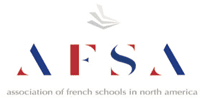Does Bilingualism Lead to Language and Speech Delays?
Chances are, if your child is actively learning a second language at a young age, it’s with high hopes that they will someday become proficient bilinguals. Let’s face it, parents don’t generally enroll children in dual language studies without the desire for them to one day become fluent in multiple languages. Along the path, however, are some key questions and even concerns that should be addressed in order to give a child the best chance at achieving true bilingualism.
Will Bilingualism Cause Speech Delays?
One of the biggest questions parents of young children face when considering a second language for their child early on is – will bilingualism cause speech delays? The concern is a valid one to address since no parent wants to inhibit the learning path of their child by any means.
While many children often display what appears to be speech delays when exposed to dual languages, it’s important to note these pauses are not delays in learning. On the contrary, when a child takes pause to consider which language to use at which time, they are actually beginning to show a mastery of both languages. The “pause” or “delay” is a sign their minds are processing the information and learning not only the language cues, but also, to problem solve and compartmentalize simultaneously.
Does Multiple Language Learning Cause Confusion?
Often times children who are learning a second language may pull words from both languages in regular conversation. This “mix up” may be seen as confusion to some, but it’s actually a sign of high cognitive functionality and impressive progress. Since children are operating on a smaller vocabulary than adults, they often need to rely on tried-and-true words to describe things they don’t yet understand. By pulling other words, they are showing they understand a cross-correlation which will help them to eventually pull together a more complete picture.
“One misunderstood behavior, which is often taken as evidence for confusion, is when bilingual children mix words from two languages in the same sentence. This is known as code mixing. In fact, code mixing is a normal part of bilingual development, and bilingual children actually have good reasons to code mix,” explains the U.S. National Library of Medicine’s National Institutes of Health.
Should You Wait to Introduce a Second Language?
Many parents consider postponing bilingual studies until their child is older and believed to be more equipped to study a second language. The belief with this is that they want their child to master one language first before introducing them to another. While this may sound plausible in theory, in order to have the best chance at fluid bilingualism, most researchers agree it’s actually best to introduce multiple languages as early as possible.
Since our brains are poised best for learning at an early age, it makes sense to introduce more learning possibilities early on. As we age, our minds evolve and begin to adapt to several environmental factors as well as physical determinants that change our ability to learn new topics. In other words, the older we get, the more our minds work against us in our ability to pick up new concepts as easily as we did when we were younger.
So, what does all of this mean? Essentially, if you’re concerned about inhibiting your child’s ability to learn by introducing a second language early on, don’t be. Research shows that the earlier and the more frequently children are exposed to dual languages, the higher their chance becomes of being fluent in both later in life.














